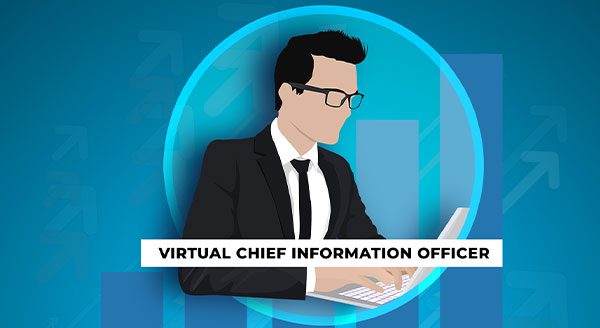
Businesses often hire a managed service provider (MSP) for tech support. But if that’s all you’re getting from your MSP, you could be missing out. You might gain by adding a Virtual CIO.
The typical MSP engagement involves coming in and surveying your IT infrastructure. You can expect the MSP to:
- make sure your antivirus software is up to date (or that you have it in the first place);
- install firewalls and other security protections;
- patch or update any tech that needs it;
- establish a data backup process.
Some MSPs will stop there. If that’s all they offer, you might consider expanding your view of what an IT provider can offer your business. Your tech support can also drive strategy to save money and ensure safe, smooth operations, and you may need a virtual CIO.
What is a vCIO?
Members of your C-suite are experts in their focus areas. A virtual chief information officer (vCIO) specializes in the latest technology and cybersecurity. More than “tech support,” the vCIO is a strategist invested in your business’s success, but they do this as a third party, virtually, instead of as an in-house employee.
A vCIO analyzes your IT infrastructure for weaknesses to suggest process or security reworks. They can formulate long-term technology goals based on your business objectives. Then, they’ll provide a road map for your technology strategy.
An MSP is more focused on service delivery, whereas the vCIO takes a forward-looking approach. Working with more decision-making authority, the VCIO can create an IT budget. They can also work to reduce your business expenses. One way they’ll do this is by building relationships with vendors to ensure the best rates and services. Note: you should already be saving money by working with a vCIO rather than hiring a traditional CIO.
What to look for in a vCIO?
The IT expert or experts taking on your vCIO role should bring a wide range of skills to the table. These include:
- ability to align your IT strategy to your business goals;
- robust knowledge of technology trends to understand what will best serve your organization;
- project planning and management skills to ensure completion on time and within scope;
- experience in cost optimization and measuring key performance indicator metrics;
- ability and willingness to collaborate effectively with teams throughout the business;
- communication skills to report to business stakeholders, and liaise with clients and vendors.
Our MSP your vCIO
Some MSPs steer clear of planning and assisting with decision-making. They hone in on today’s operational tasks and fix current problems, but our IT experts are here to add immense value to your business. Partner with us in the vCIO role. We’ll be supportive and provide a technology direction to help you grow your business.
Contact us today at (515)422-1995.



